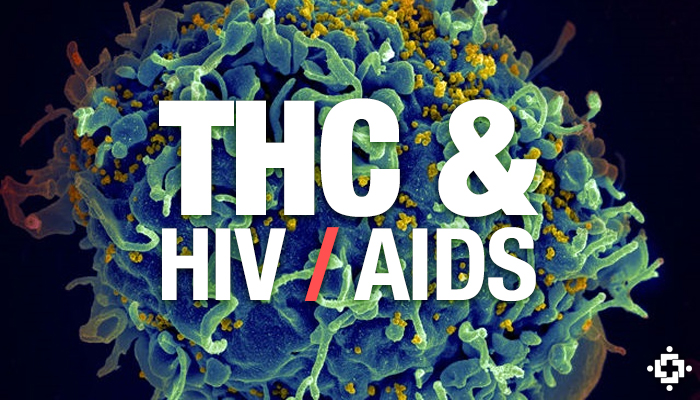
Study: Tetrahydrocannabinol (THC) May Inhibit The Progression Of HIV / AIDS
Medical marijuana has long been used to treat symptoms associated human immunodeficiency virus (HIV) (chronic pain, nausea, fatigue, etc.). However, evidence is mounting that cannabis may stop the disease’s progression.
A group of researchers from Louisiana State University published a study in the journal AIDS Research and Human Retroviruses that helps fuel the fire. The study findings suggest that cannabis, specifically tetrahydrocannabinol (THC), could help aid in the battle against HIV.
Researchers Investigate THC, HIV/AIDS In Primates
Affecting more that 1.1 million people in the US, HIV is a slowly replicating retrovirus that attacks your immune system. It causes acquired immunodeficiency syndrome (AIDS) when left untreated, which took 15,529 lives in 2010 according to the Centers for Disease Control and Prevention.

Using monkeys as models, the Louisiana State researchers investigated the potential role of cannabis in treating HIV. They treated a group of infected primates with as much as 0.64 mg/kg of tetrahydrocannabinol (THC) per day for 17 months.
“Tissue from monkeys treated with tetrahydrocannabinol (THC) expressed fewer signs of HIV.”
Considering the gut is one of the most common ways for HIV to spread, the research team sampled stomach tissue from the THC-dosed monkeys, as well as a group of infected primates that did not receive treatment.
 According to their results, the virus did significantly less damage in THC group when compared to the control group. Tissue from monkeys treated with tetrahydrocannabinol (THC) expressed fewer signs of HIV also.
According to their results, the virus did significantly less damage in THC group when compared to the control group. Tissue from monkeys treated with tetrahydrocannabinol (THC) expressed fewer signs of HIV also.
What does it mean? Lead author Dr. Patricia Molina, who published a similar study in 2011, explains: “These findings reveal novel mechanisms that may potentially contribute to cannabinoid-mediated disease modulation.”
Of course, this not the first study to determine that cannabis can fight the progression of HIV. A study published in 2012 found that activation of the CB2 receptors can help fight the virus in late-stage AIDS patients.